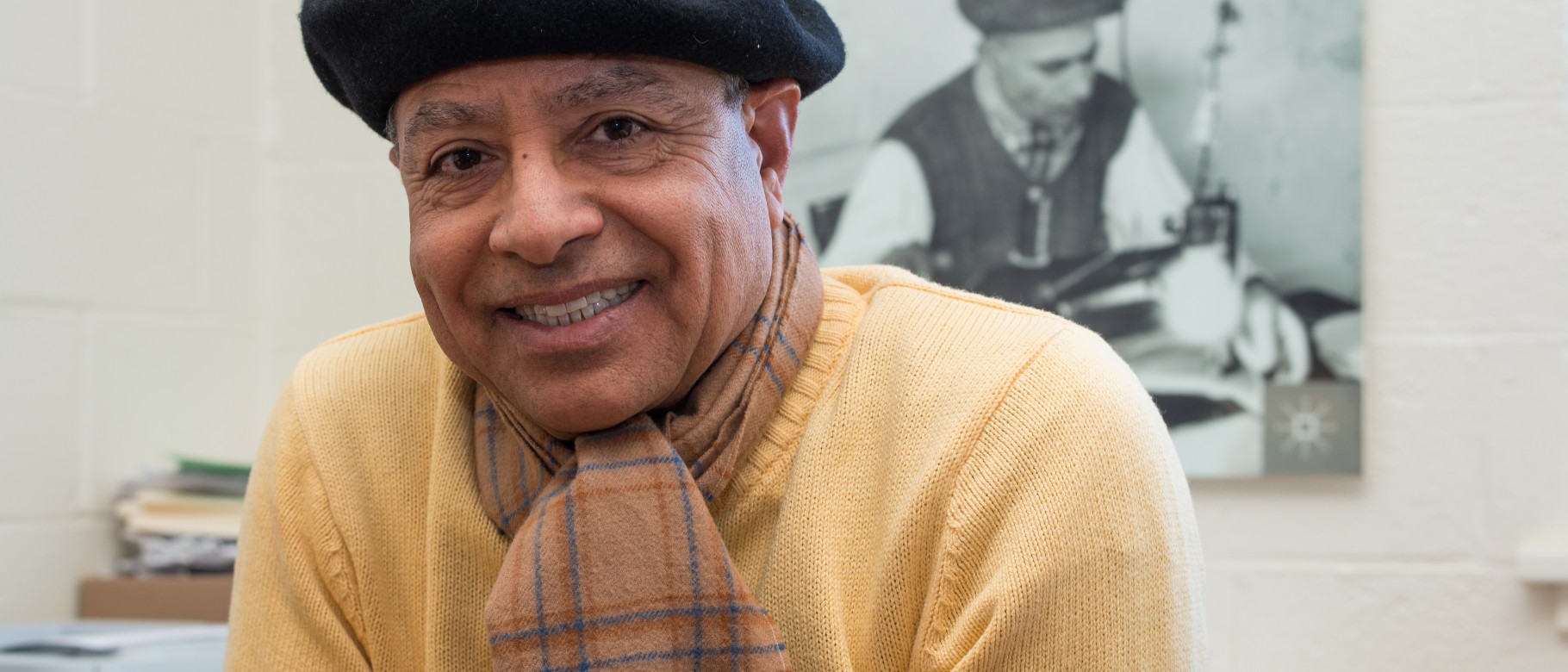Ali Ahmida gives presentations and receives award in Cairo, Egypt

Ali Ahmida, Ph.D., professor in the Department of Political Science, recently returned from Cairo, Egypt, where he presented two talks and received an award.
On March 24, Ahmida discussed “The Future of National Reconciliation in Post Revolution Libya” at the Libyan Cultural and Social Club. The well attended talk was covered by the Egyptian newspaper al Youm al-Sabia (Seventh Day). At the club, the editorial board of the well-respected Libyan journal Arajeen: Papers in Libyan Culture presented him with an award in recognition of his distinguished scholarship on historical research and culture. This independent journal was published in Egypt but banned in Libya between 2004 and 2011. According to Ahmida, it has been the most respected critical journal for Libyan scholars and writers during the last days of Gadhafi’s regime.
On March 26, Ahmida presented a paper in a bi-lingual international conference at the American University in Cairo. The talk was part of an annual history seminar sponsored by the Department of Arab and Islamic Civilizations in the School of Humanities and Social Sciences at the university. At the seminar, whose title this year was “Sharia, Fiqh, Urf, Qanun (Entangled Legal Histories of the Middle East”), Ahmida discussed “Islamic Reform in the Age of Imperialism: Sayyad Muhammad Ben Ali al-Sanusi’s arguments for Reopening the Gates of Ijtihad.”
Ahmida was a guest onMPBN’s “Maine Calling” program to discuss current events in Egypt following his trip. He was asked to describe the current attitudes of the city’s residents. He noted that while many people expressed unhappiness with the sense of confusion and the economic situation, others were grateful that the country had a sense of stability that it was previously lacking.
“There is... a variety of opinions,” Ahmida explained. “You can feel there is a sense that there is a crisis; there is confusion; there is also dismay about their liveliness, but also some confessed that stability is important before we want to have the freedom, the rule of law and the representation.”